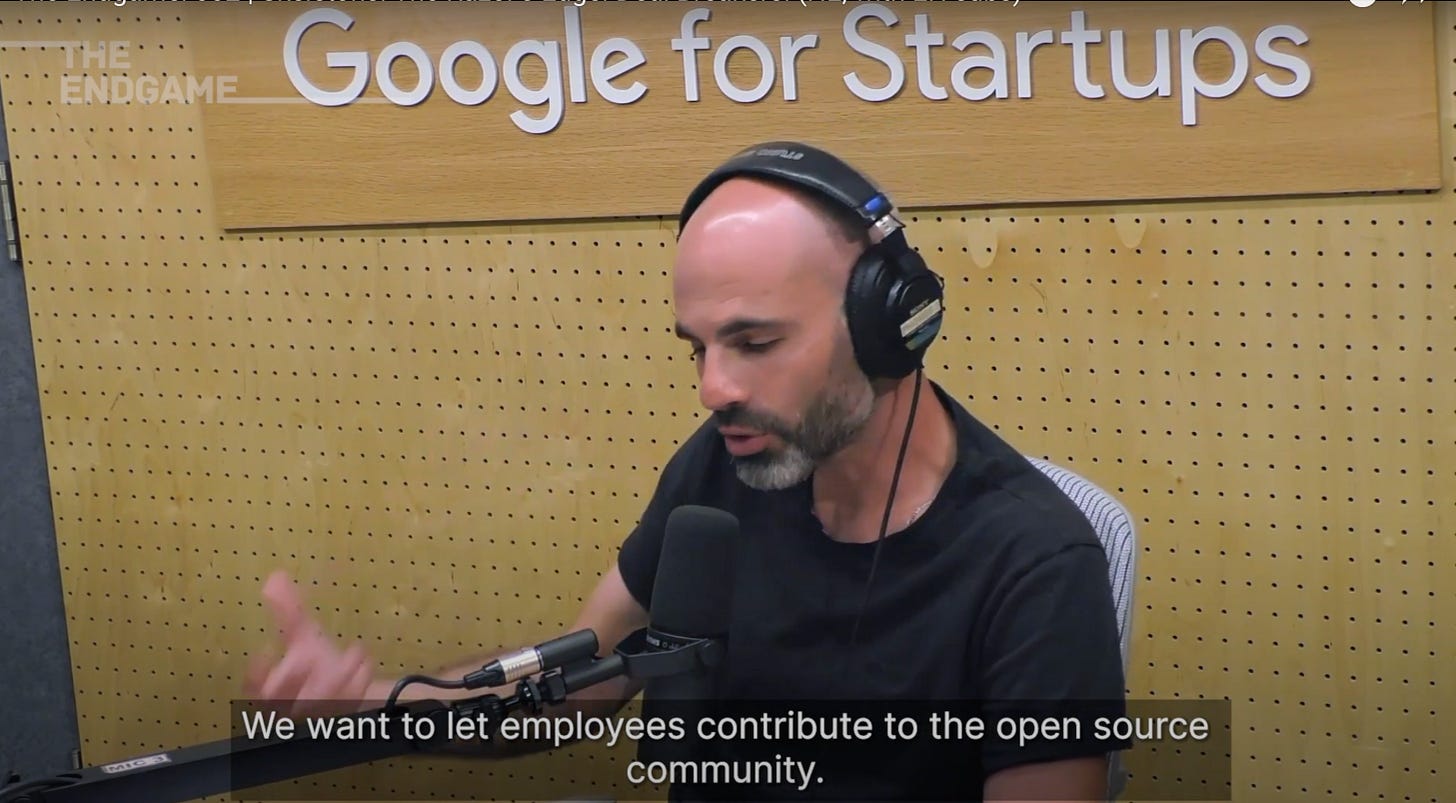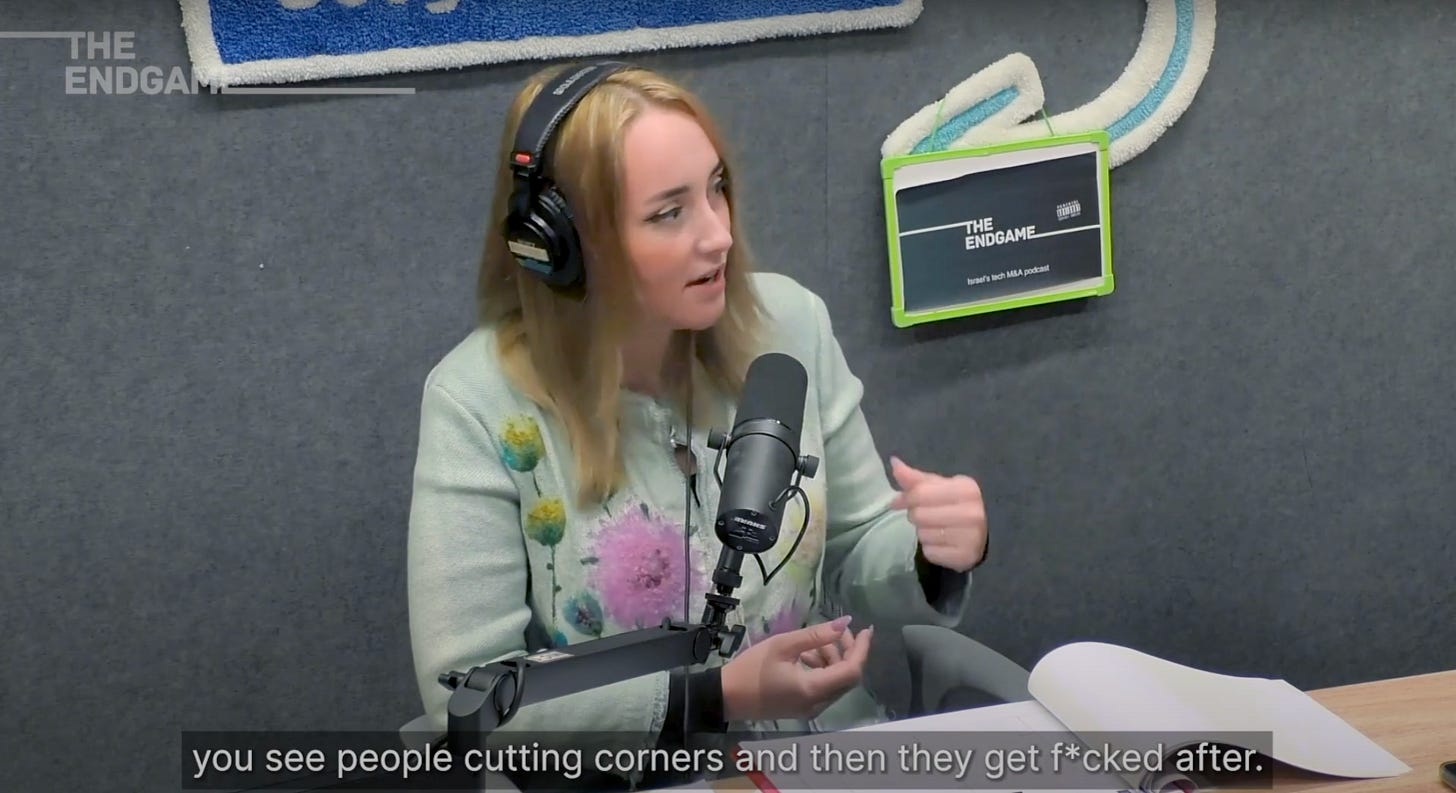Founder playbook: an M&A attorney's perspective on skeletons, the razor’s edge, and deal breakers.
By Zeevi Michel, with Sim Koevary, Meitar | Law Offices
Here we go, ladies and gents out there starting companies, in the unlikely event that you're worried about how your decisions today will bite you in the a$$ come M&A time... we've sampled out some key insights for you from Episode 002 where M&A attorney Sim Koevary (Meitar | Law Offices) takes us into the ring on tech M&A deals that have gone spectacularly right—and disastrously wrong.
From the hidden skeletons that implode transactions to the razor-thin boundaries of the playing field, Sim breaks down the unwritten rules founders need to play by. Hosts Sophie and Zeevi chart the fragile balance of power in M&A, and how founders can leverage their legal partners to maximize shareholder value - and minimize fallout.
Reality check - don't always believe the numbers reported, particularly in smaller deals.
Mistakes are not created equal.
Sim says that not all your mistakes will become dealbreakers for acquirers later, but you will have to disclose them. Manage mistakes early on before they come back to haunt you.
Common mistakes center around IP.
This area is still, surprisingly, commonly ignored or left for later, and ends up costing founders. Sim recounts, "There is no end to situations where you've left unfinished business and said it will be okay...Like the Ukrainian developer you hired to write your code and had him sign an Israeli document, it doesn't work. When you bring on a developer in Ukraine, Poland, if you don't have the right paperwork it can be catastrophic."
Equity woes - who manages it, and who deserves more.
When you're giving out equity, remember that everyone simply can't have acceleration. Only key executives should get preferential terms, and only in the event of an M&A, not in an IPO. Hear why on the show (link to minute 00:49).
Sim notes, "The most significant part of the company is the equity. And way too often, the founder puts the person at the bottom of the food chain in charge of this. In an Excel. With 6 different versions. There is software to help with this now."
Focus on your interests as the founder.
As the founder, you need to understand your own interests from day one and acknowledge that taking the VC funding path means you need to end up at a liquidity event. At the same time, your interests will not always be aligned with those of your investors'. Figure out who is truly on your side.
Conflicts of interest usually arise in bad deals.
"When everyone's happy, everyone's happy. And in the end, I think making a deal where one side is happy and the other is miserable is a recipe for failure. [If someone is unhappy,] everyone should be equally unhappy. That's how we know we've done our job if the deal isn’t great at the outset."
Relationships.
Founders should invest in high-quality relationships with their service providers -- in Israel, unlike in the U.S., relationships are less transactional. The founder's job is picking the right team to walk the path with, and ultimately take care of your company's interests - and your own - come transaction time.
Some other topics this episode covers:
What really makes acquirers walk away
Legit founder deal breakers: what's worth going to war for
The silent power struggles between VCs and founders
Instincts, gut feelings, and team dynamics
Misaligned expectations: where deals break down
Listen:
Credits:
Produced by: Sophia Tupolev-Luz
Video and sound editing by: Yair Walden
Location: Google for Startups Campus Studio, Tel Aviv





